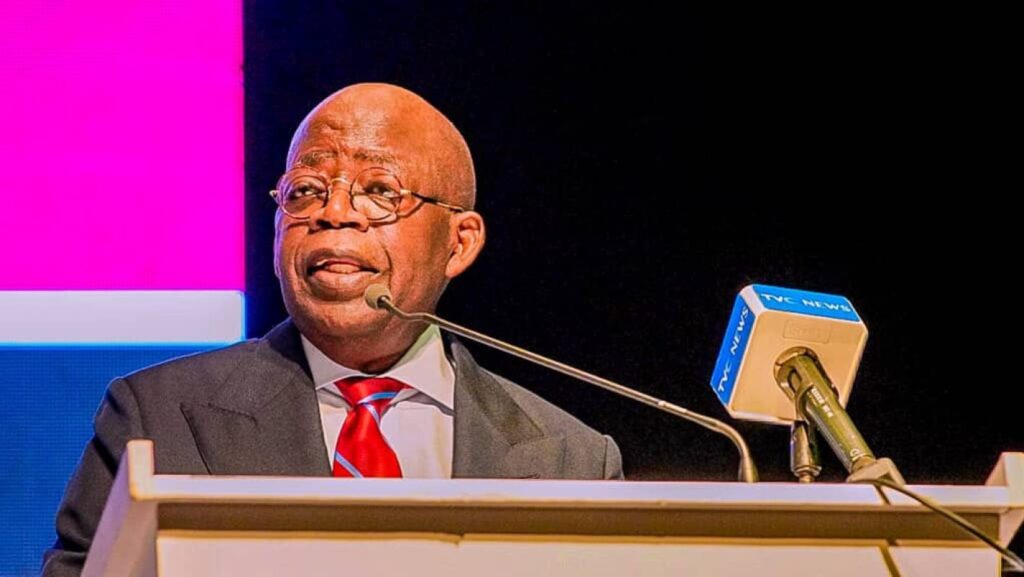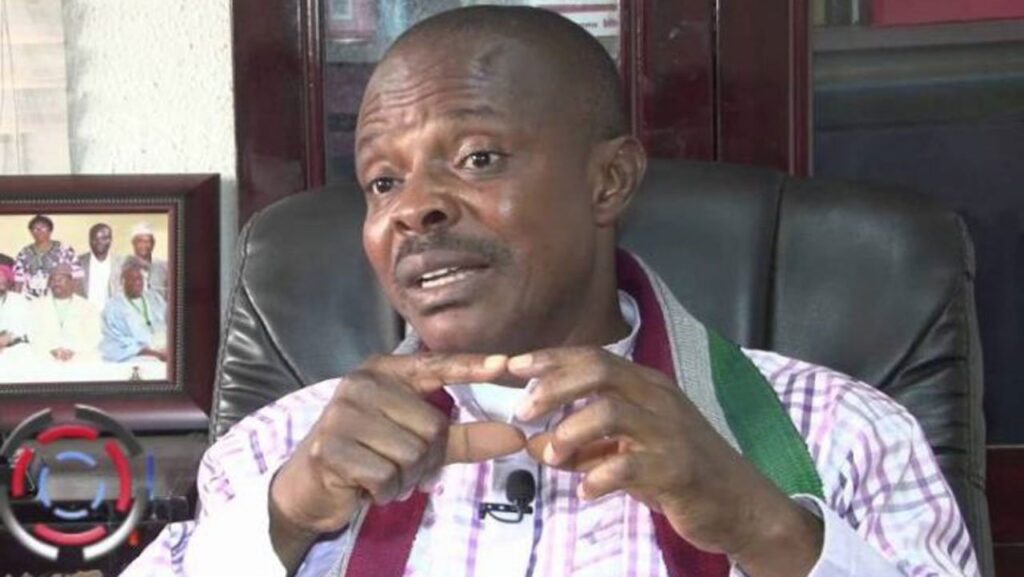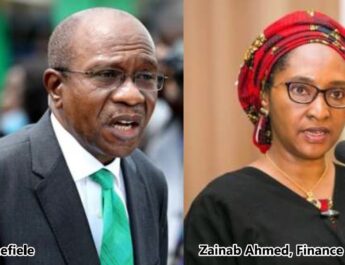The recent removal of fuel subsidy by the administration of President Bola Ahmed Tinubu has put many Nigerians in excruciating hardship as inflation has skyrocketed making living brutish
By Miracle Egbo
Friday Okoro is a cleaner in a company based in Ikeja, capital of Lagos State. According to him, his take home pay is about 60 thousand naira per month. Since the removal of the fuel subsidy by the administration of President Bola Ahmed Tinubu he has been dislocated financially because the transportation has taken half of his salary. “In other to cut corner, I have resorted to trekking but that is not helping matters as the consequences on my health is unbecoming. I trek kilometers everyday because I do not have money to pay for the expensive transport fare. My company is not looking our way because the economy is not fair to it either, the reason they said that anybody is who is not ready to cope with the money it can afford to pay should resign. I cannot resign because I have a lot of bills to pick at the end of the day. My children must eat on daily basis and it is from this cleaning job that I feed them, therefore, I cannot even think of resigning now when I do not have workable alternative”, laments Okoro

The tale of Okoro appears to be the signature of Nigerians since the removal of the fuel subsidy was announced by the Tinubu administration in June. The booby trap set for Nigerians by the Cow boy style of President Tinubu in the removal is reminiscent of the ill-fated Structural Adjustment Programme of the former military junta, Ibrahim Badamosi Babangida that further ruined the economic fabric s of the country that is yet to recovers years after. Days after the announcement of the removal of the fuel subsidy, there was spike in the prices of goods and services in the country to the extent that the common man on the street is almost running amok in footing their respective bills.
Investigation occasioned by Tentacle revealed that some state governments had reduced the number of days that civil servants are expected to come to work to three days in a week as part of the measure to cushion the effecst of the fuel subsidy removal. States like Edo, Akwa Ibom, Enugu and many others have adopted that method in assisting civil servants in their states. Information has it that the government of the day is deficient in plan or plans to cushion the effects of the removal as there are no practical efforts at making sure that Nigerians are not suffering unnecessary for the failure of leaders especially in the past eight years.
 Market survey done by this medium is mind boggling as prices of staple foods have gone out of the reach of the common man on the street. For instance, a paint of garri that hitherto was sold for N800 now goes for N1,200 to N1,500 depending on the market one is patronizing. The price of rice, beans, yam and other staple foods in the market are now beyond the reach of an average Nigerian. Mrs. Veronica Okoye, a food stuff seller in the Ikotun Market in the outskirt of Lagos State told this medium that the spike in the prices of staple foods in the market was due to the300 per cent increase in the cost of transporting the goods to the market and all sorts of taxes imposed on the traders in the markets spread all over the Lagos State.
Market survey done by this medium is mind boggling as prices of staple foods have gone out of the reach of the common man on the street. For instance, a paint of garri that hitherto was sold for N800 now goes for N1,200 to N1,500 depending on the market one is patronizing. The price of rice, beans, yam and other staple foods in the market are now beyond the reach of an average Nigerian. Mrs. Veronica Okoye, a food stuff seller in the Ikotun Market in the outskirt of Lagos State told this medium that the spike in the prices of staple foods in the market was due to the300 per cent increase in the cost of transporting the goods to the market and all sorts of taxes imposed on the traders in the markets spread all over the Lagos State.
“Before now to bring 10 bags of garri from Benin to Lagos cost N5,000 but today we pay as much as N50,000 to N70,000 depending on the driver you engaged for the business. The price of a bag of garri had skyrocketed since the announcement of the fuel subsidy removal in the country. In most cases we are at loss when we pick bills related to transporting these goods to their final terminus to sell to the final consumer. We are groaning under the cost of transportation in carrying out our trade, and it is not funny”, retorted Mrs. Okoye who sells garri at Ikotun market. Mr. Okoye Samuel another food stuff seller in the market could not agree less with Mrs. Okoye. According to Mr. Samuel, before now, to transport a bag of rice from where we buy, it costs N5,000 per bag but today it goes as high as N10,000 to N15,00 and that is why a bag of rice sells as high as N45,000 to N50,000, the same applies for other staple foods in the market.
“Can you imagine that even when you bring bags of rice to the market, barrow pushers equally hiked the charges for carrying one bag from point of offloading of the bags of rice to your shop. Before they charge N200 naira per bag but today they charging N1,000, these are some of the charges we incurred before selling to the final consumers, and we factor all these into the price of the commodities that we sell in the market”, offered Mr. Samuel
 According to reports, monitored by this medium, many families could hardly feed because the cost of feeding is beyond their reach. Some women had resorted to begging in order to foot their bills that are already out of their reach. Fetus Egbo a stock broker residing in Lagos told this medium that before now he could use N5, 000 to pick modest groceries but now N20, 000, could not pick all that N5, 000 could afford him in the past. “We are in for more trouble in this country, the way things are going because I do not see any relief coming the way of the common man because I have not seen any pragmatic attempt by the government of the day to assist the common man on the street. I do not see any hope anywhere, we are actually in for more hard times despite the fact that we have grappled with hard economic reality for the shameful years of former President Mohammadu Buhari”, Egbo reasoned.
According to reports, monitored by this medium, many families could hardly feed because the cost of feeding is beyond their reach. Some women had resorted to begging in order to foot their bills that are already out of their reach. Fetus Egbo a stock broker residing in Lagos told this medium that before now he could use N5, 000 to pick modest groceries but now N20, 000, could not pick all that N5, 000 could afford him in the past. “We are in for more trouble in this country, the way things are going because I do not see any relief coming the way of the common man because I have not seen any pragmatic attempt by the government of the day to assist the common man on the street. I do not see any hope anywhere, we are actually in for more hard times despite the fact that we have grappled with hard economic reality for the shameful years of former President Mohammadu Buhari”, Egbo reasoned.
The slavery kind of policy by the administration of Tinubu is further going to deepen the poverty level of an average Nigerian because the cost of living had gone out of the reach of an average Nigerian. Even expected interventions of the Nigerian Labour Congress, NLC have been temporarily thwarted by the litigation of the Federal Government stopping it from embarking on industrial action until the determination of the case which is pending at the Industrial Dispute Court.
Coming on the heels of the fuel subsidy removal is the hike in the electricity tariffs which will take off on July 1, 2023. Comrade Joe Ajaero, the President of Nigeria Labour Congress, NLC, has said that the mooted hike on the electricity tariff is cruel, insensitive and callous, and should be discouraged by the current administration. He said that there is no justification whatsoever for the planned hike in the electricity tariff, adding that NLC is making consultations in this regard and is going to make its stand on the matter known in matter of days.




